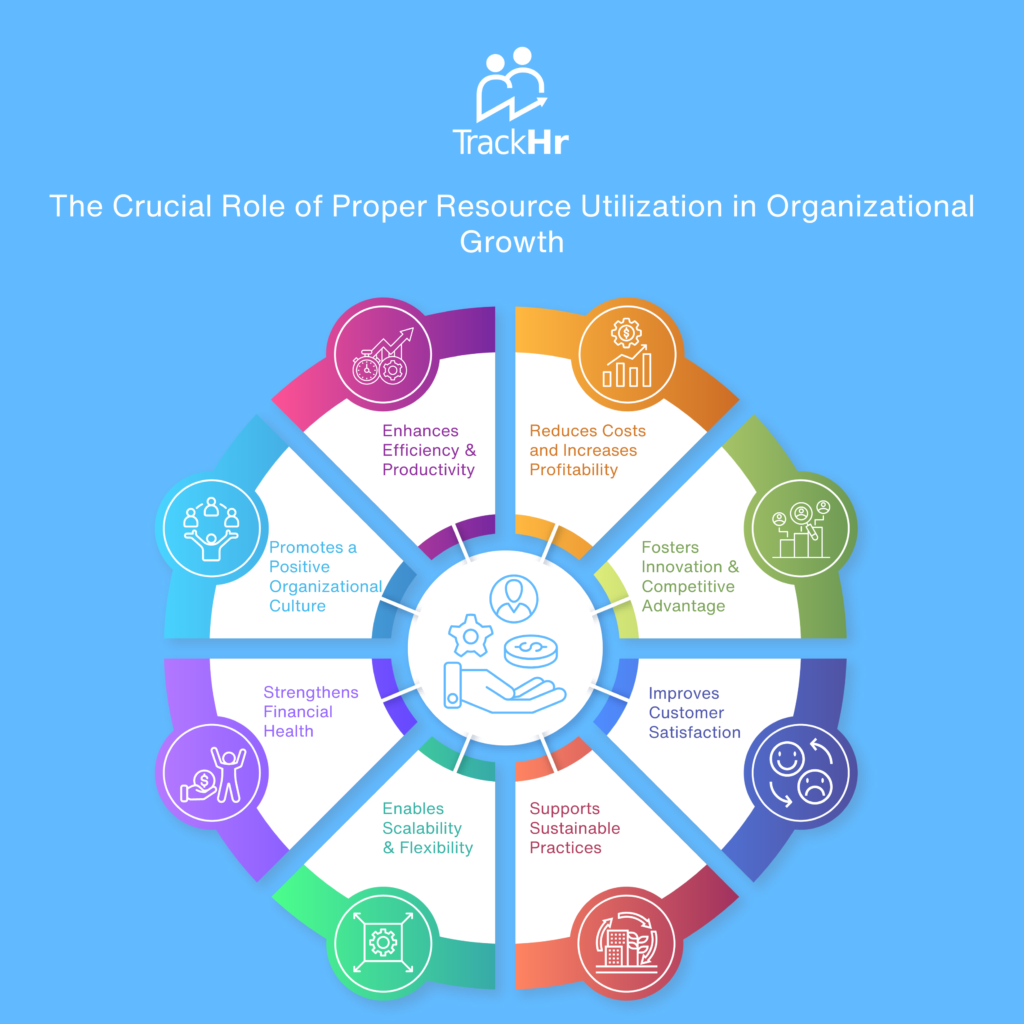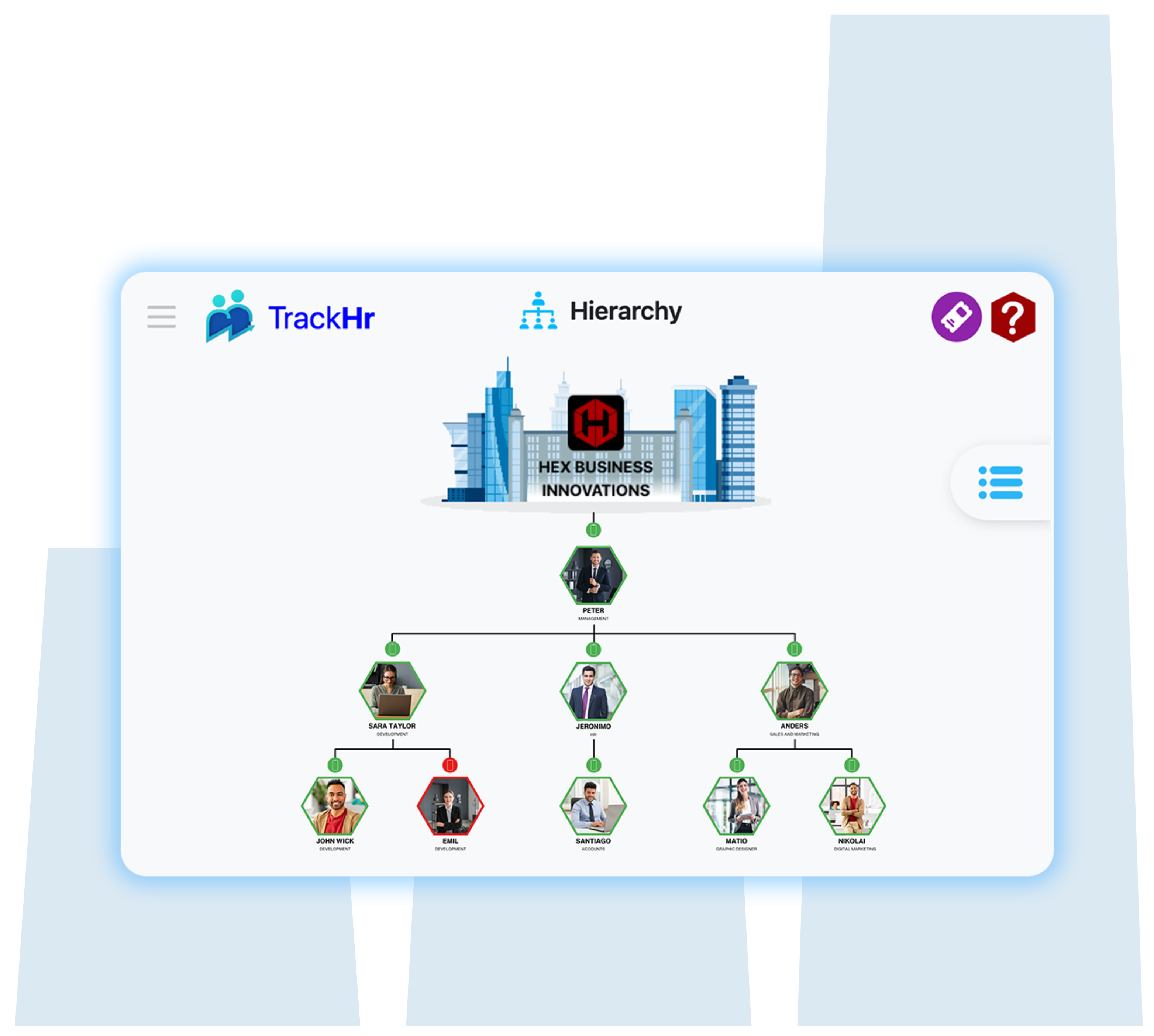Wednesday, 05 June 2024
The Crucial Role of Proper Resource Utilization in Organizational Growth
In the rapidly evolving and competitive business landscape, the efficient use of resources is paramount for the sustainable growth of any organization. Resources—be it human, financial, technological, or natural—are the building blocks that determine an organization’s ability to thrive and innovate. Proper resource utilization not only maximizes productivity but also paves the way for long-term success and stability. Here’s why optimal resource management is indispensable for organizational growth:

1. Enhances Efficiency and Productivity
Efficient resource utilization ensures that every resource is used to its maximum potential, minimizing waste and redundancy. This leads to higher productivity levels, as tasks are completed faster and more effectively. When employees have access to the right tools and are not burdened with unnecessary tasks, they can focus on their core responsibilities, leading to improved performance and job satisfaction.
2. Reduces Costs and Increases Profitability
One of the direct benefits of proper resource management is cost reduction. By avoiding the overuse or underuse of resources, organizations can significantly cut down on unnecessary expenses. This includes reducing energy consumption, minimizing material waste, and optimizing labor costs. Lower operational costs translate to higher profitability, allowing organizations to reinvest in their growth and development.
3. Fosters Innovation and Competitive Advantage
Optimal resource allocation encourages a culture of innovation. When resources are used wisely, organizations can invest in research and development, exploring new ideas and technologies. This proactive approach to innovation helps businesses stay ahead of the curve, offering unique products and services that set them apart from competitors. A strong focus on innovation is often the key to sustaining long-term growth and maintaining a competitive edge.
4. Improves Customer Satisfaction
Efficient resource utilization leads to the timely delivery of high-quality products and services, directly impacting customer satisfaction. When organizations can meet customer demands consistently and efficiently, they build trust and loyalty. Satisfied customers are more likely to become repeat clients and advocates for the brand, driving further growth through positive word-of-mouth and increased sales.
5. Supports Sustainable Practices
In today’s environmentally conscious world, sustainable resource management is not just a responsibility but a necessity. By utilizing resources efficiently, organizations can reduce their environmental footprint, promoting sustainability and corporate social responsibility. This not only helps in preserving the environment but also enhances the organization’s reputation and appeal to eco-conscious consumers and stakeholders.
6. Enables Scalability and Flexibility
Proper resource utilization prepares organizations for scalability. When resources are managed effectively, businesses can quickly adapt to changing market conditions, scale operations, and seize new opportunities. This flexibility is crucial in a dynamic business environment where the ability to pivot and respond to new challenges can determine an organization’s success or failure.
7. Strengthens Financial Health
Effective resource management ensures that financial resources are allocated judiciously, prioritizing investments that yield the highest returns. This strategic approach to financial management strengthens the organization’s financial health, providing a solid foundation for growth. With robust financial stability, organizations can weather economic downturns and invest in expansion and innovation initiatives.
8. Promotes a Positive Organizational Culture
When resources are utilized effectively, employees experience less stress and burnout, leading to a healthier work environment. A positive organizational culture fosters collaboration, motivation, and employee retention. Engaged and satisfied employees are more productive and committed to the organization’s goals, driving overall growth and success.
Conclusion
Proper resource utilization is not merely an operational necessity but a strategic imperative for organizational growth. By maximizing efficiency, reducing costs, fostering innovation, and promoting sustainability, organizations can achieve sustainable growth and maintain a competitive edge. As the business landscape continues to evolve, those who master the art of resource management will be best positioned to thrive and lead in their respective industries.



